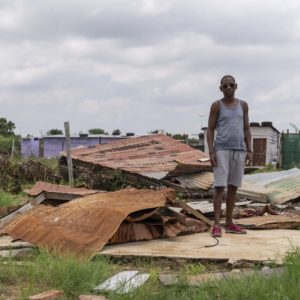Voter sentiment in Kliptown is downbeat
Some residents are resigned to voting in the municipal elections on the slim chance that it changes their circumstances, others are undecided and those without identity documents feel hopeless.
Author:
14 October 2021
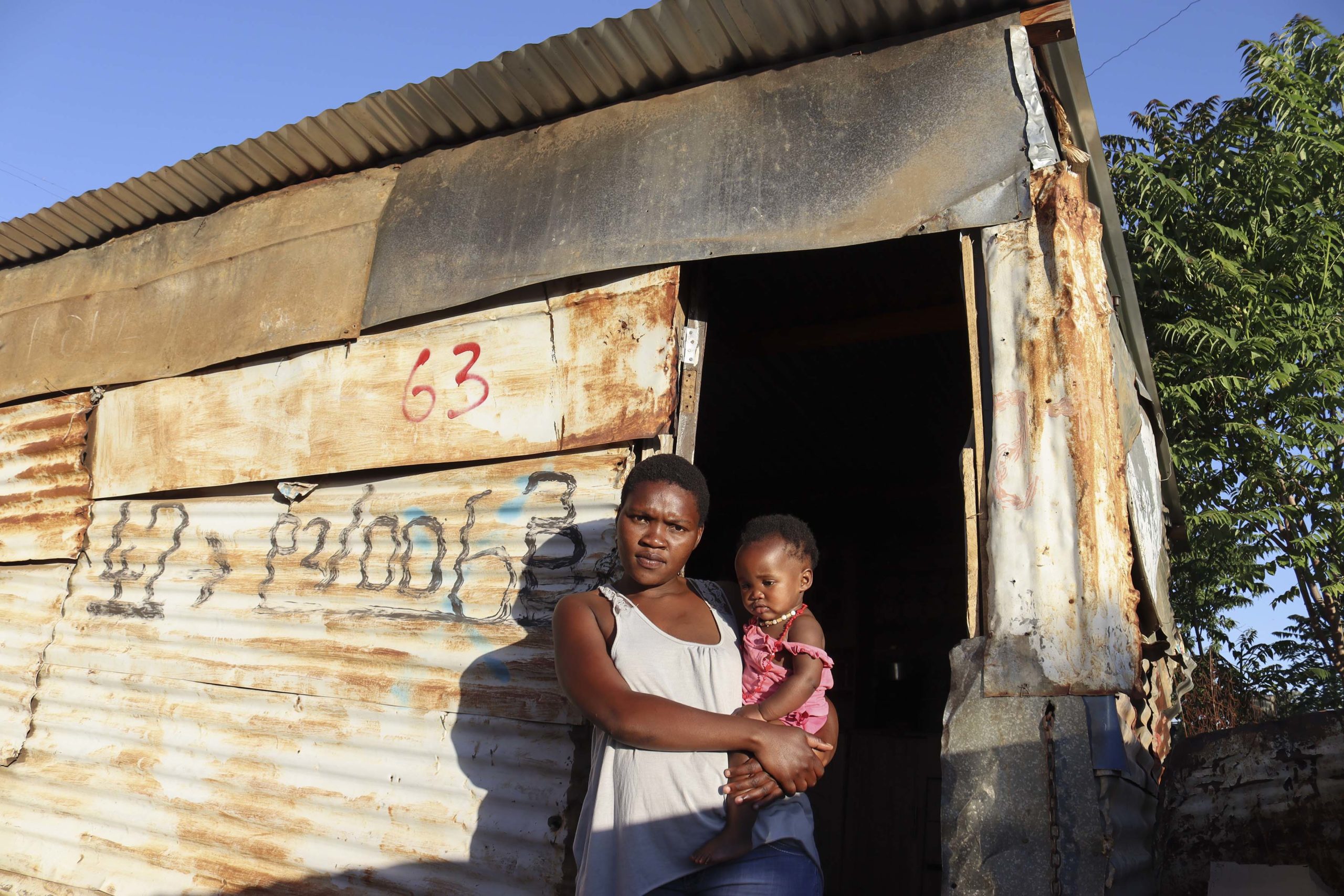
In 1955, the ANC launched a national listening campaign to ascertain the aspirations of the people. The content gathered formed the charismatic Freedom Charter – a precursor to the Constitution of 1996 – signed in Kliptown, Soweto, that same year.
“That [Freedom Charter] was signed before all these flats were put here, when this place where I’m standing was still just a veld, and before Parliament was built. They signed saying that we would have houses, yet even now we are still supposedly getting them,” says Dolly Mbolekwa.
The 42-year-old has lived in Kliptown her whole life. She is unemployed and lives with her four children. Although she has registered to vote in the upcoming municipal elections, she is still deliberating if she should.
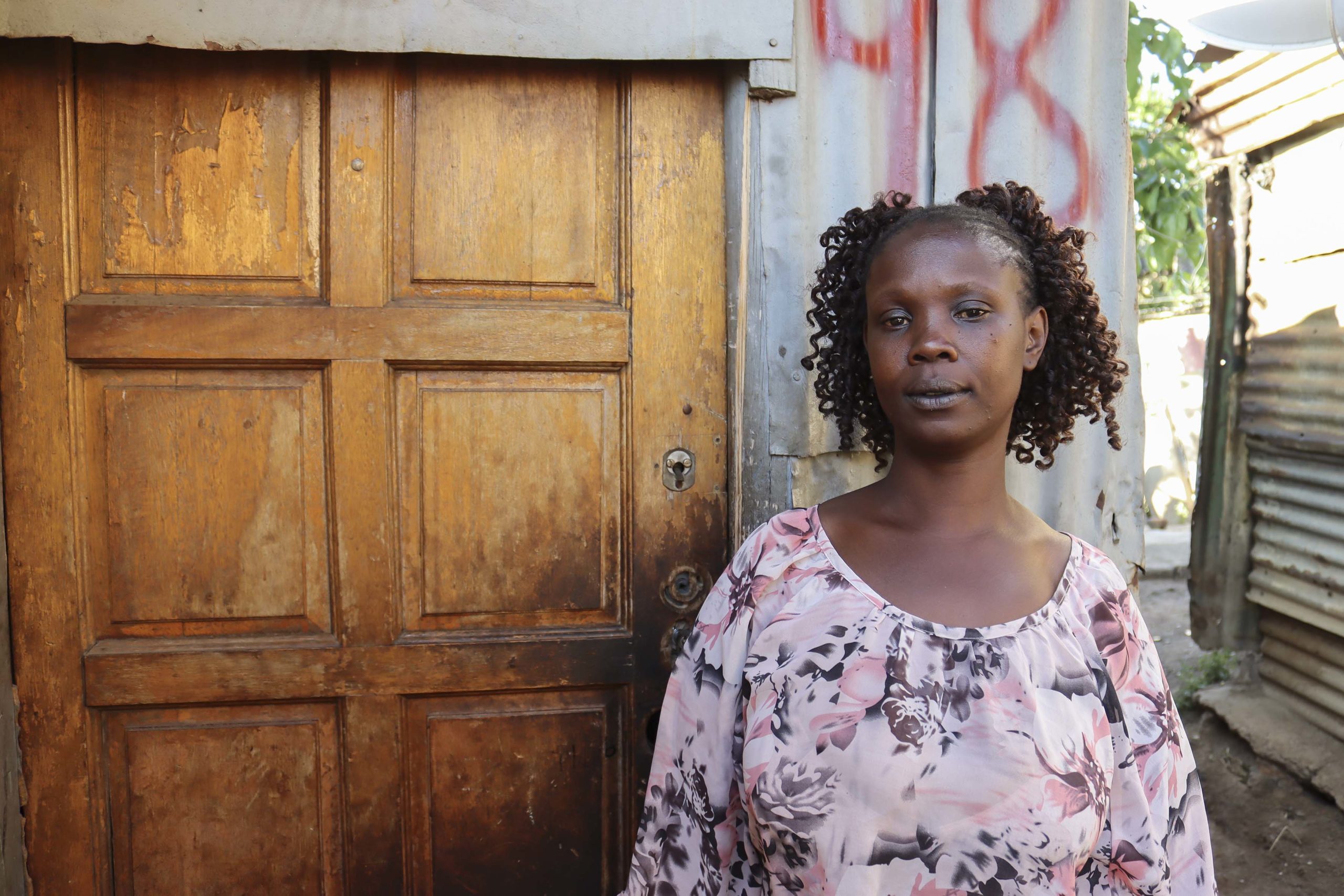
“The way that Kliptown is, I don’t see the need for people in Kliptown to be voting because we vote, but we don’t get what we want. We are losing and others are gaining, so what are we voting for? How many years must Kliptown be like this? They will not feel any shame because they are benefitting,” she says.
Mbolekwa says political parties have been campaigning, but they choose specific areas because they know that certain communities are angry about their living conditions and the glacial pace of progress.
“Kliptown is very beautiful. My heart hurts so much when I see Freedom Park, a newcomer, when I see Orange Farm, a newcomer. When I look at all these other townships that are being developed around us, I ask myself what is so wrong with the place that I grew up in? What is the issue that is stopping us from being like them so I can leave the primus stove and go and buy electricity like others?” she shrugs.
Paraffin or nothing
Paraffin is bought by the litre and Mbolekwa buys 20 litres at R15 a litre for the month. She uses it to iron, boil water and cook food, and hopes to stretch it through the month. But five litres doesn’t last longer than a day and a half, and “without paraffin, nothing can be done, your life is stuck. The mielie meal will sit there, the tomato will sit there, because you have no paraffin.” Although she has been approved for the Covid-19 relief of social distress grant, she has not received her money yet, so she uses her children’s grant money.
Mbolekwa still has no access to municipal services. Her only water source is a communal tap and she shares a chemical toilet with many others. During the initial stages of the government’s Covid-19 lockdown, Mbolekwa gave in and hooked up to an informal electricity connection.
Related article:
“Here in Kliptown, there is no electricity. How long have I been using paraffin? There is no progress … and yet we are voting. We have councillors, but they are doing nothing for us … We want to vote, but we are scared that even if we bring new ones into power, things will still be the same … No one is going to bring change, it’s all the same no matter who is in power … They come and make promises, but at the end of the day, once they get our votes, we are nothing to them. They know themselves as powerful people … through our votes,” she says.
Despite a sweeping declaration of access to decent housing and land, Mbolekwa says many remain without houses, yet there is no paper or form they don’t have.
“Some people were given happy letters … They are living with us here, but they have happy letters saying they have houses, and still those people have to vote? Why are you voting? You have a letter saying you have a new home, but you are here in the shacks with us? We cannot go and vote because they are selling us out and we don’t know who to complain to. How can we vote when our cries are not being heard? So they must also lose our votes and see that we are hurt by what is going on,” she says.
Round and round
Malibongwe Dlamini, 47, has been living in Kliptown for more than 20 years and says residents have been waiting for freedom. When it has arrived, it has not corresponded with what they were promised. By now, he thought he would be living in a beautiful house with his children and grandchildren rather than running a tuck shop in front of his shack.
“I wish to vote, but the way things are going, I don’t see it happening because what happens is we will vote based on the promises. After that, they won’t be able to do what is right, and then we go back to the same complaints,” he says, lamenting the repetitive cycle.
Dlamini says if an unpopular character tries to say something, they will not be given a chance to speak even if they have a valid point, purely because they are disliked. This moves Kliptown backwards.
“The issue for me is with our leadership. The way I see it, we need different parties to be in charge at the same time so no one can sabotage the other because they have a different position … That delays freedom from advancing,” he says.
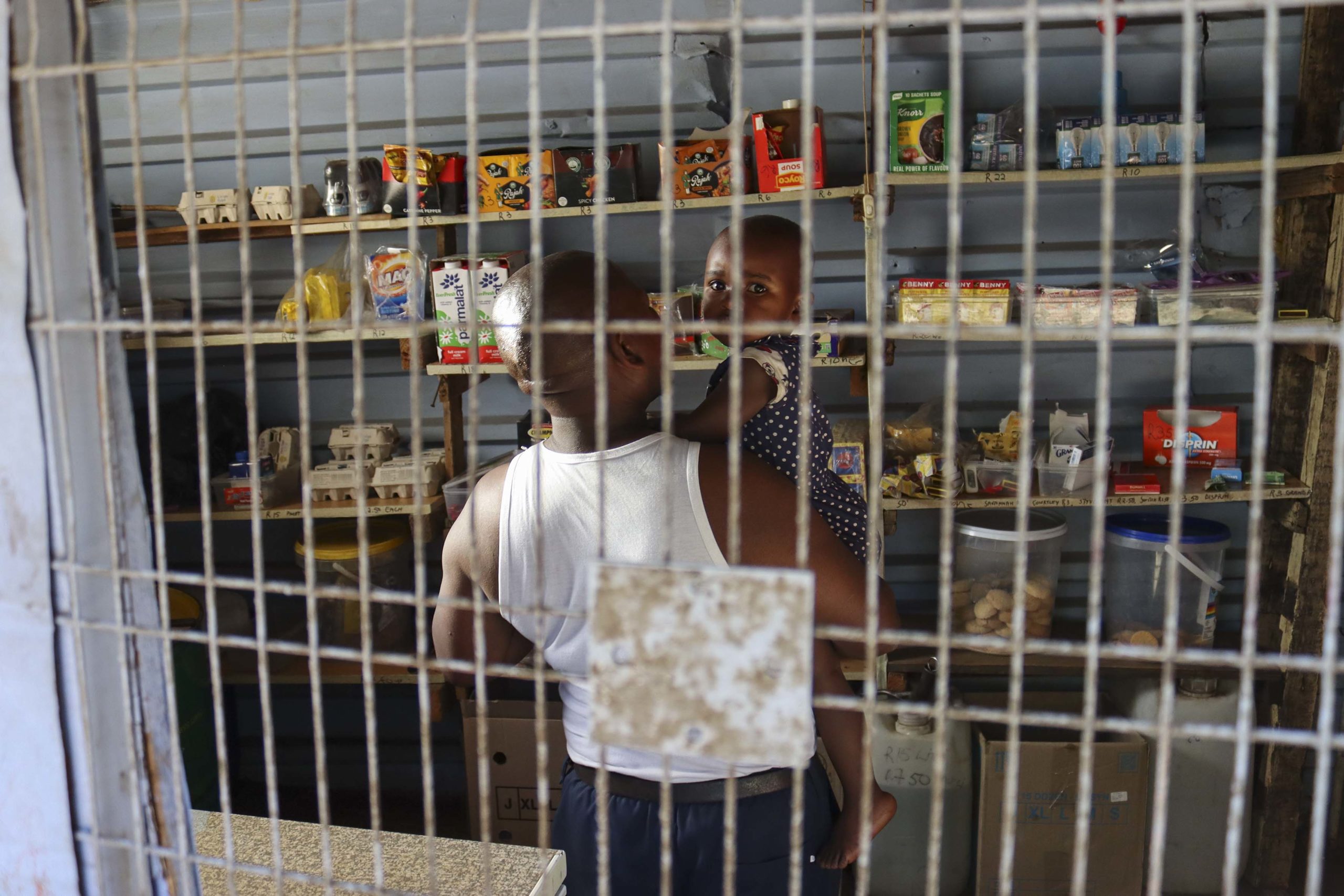
Wombisa Magqazana, 56, got married in 1993 and moved from Roma in Soweto to Kliptown. She filled out the required forms for housing in 1996 and was told in 2016 that her house was ready. But when she asked about it, she found out that her house had been given to someone else.
“That’s how I lost my house. It was said at the time that there were lunch tins with money being dished out for houses. I believe that is how my house got sold to someone else. I have been living here since. We were then told about reblocking, and even now we are still waiting for this reblocking at Chicken Farm,” she says, leading the way to her house.
A long wait
Magqazana expected to be moved after explaining her plight to the local leadership, but still lives on an elevated slope directly below a busy main road. Her bedroom window faces directly on to a fly-infested pit latrine.
“Cars could easily fall on me here,” she points up at the road, “and here is the window. I can’t even open it, you see it’s closed? I can’t even open it no matter how hot it gets. This is why I told them I want to move and I was told to wait for reblocking.
“Another thing, as a person who is sick with diabetes and everything else, I told them I can no longer climb these stairs because my knees no longer allow me to, you understand? Again, I was told to wait. I am still waiting even now, amen,” she says, clapping her hands once.
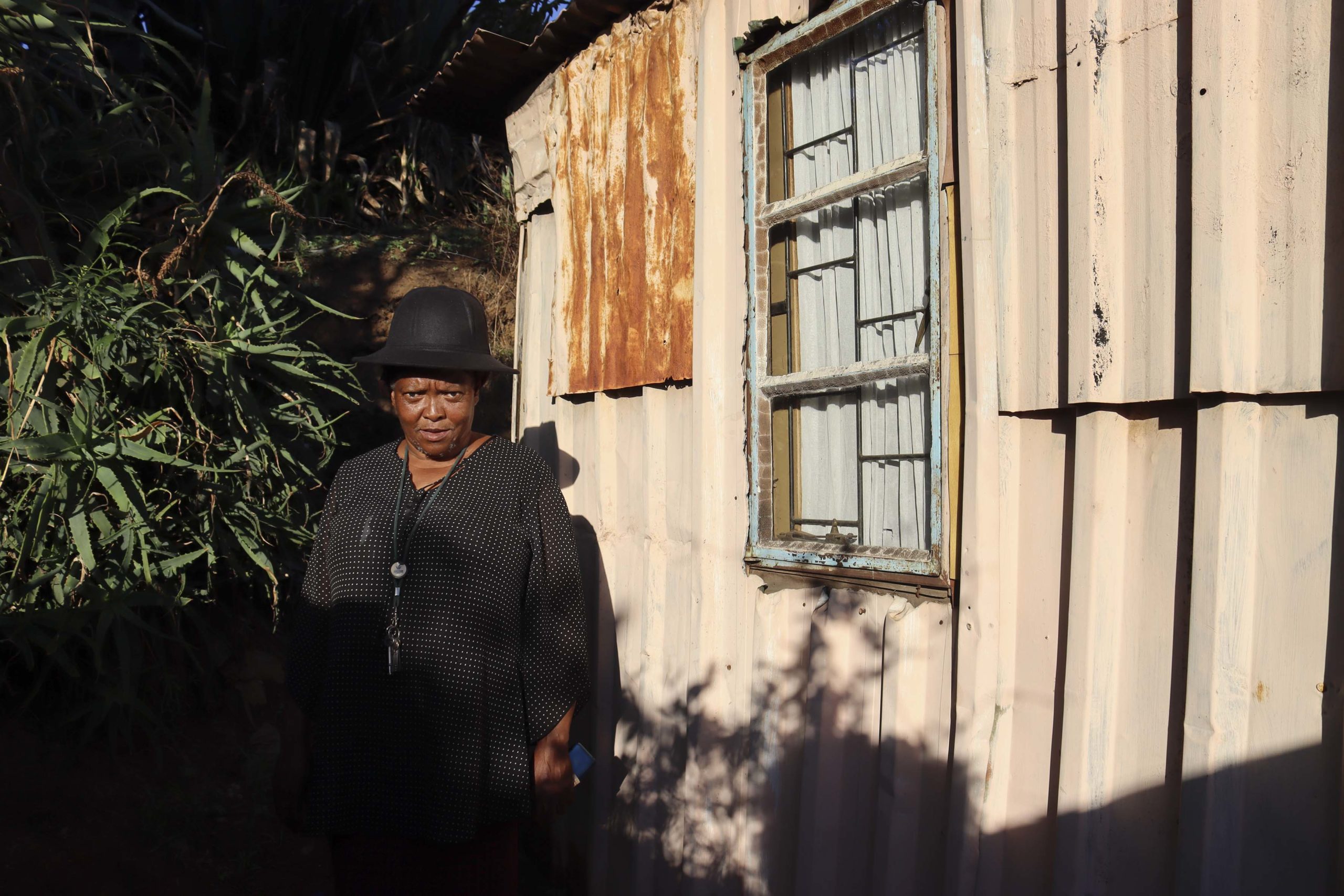
Magqazana says she will continue to vote nonetheless because she has been told to vote.
“I have been voting since the first time they told us to vote, from the time of Mandela’s release in 1994 … We then put that X for Mbeki, then again for Zuma, we did it again for Ramaphosa. Even when he leaves, we will vote because we believe there will be change … Nothing is changing, it is the same,” she says.
When asked why she continues to vote for the same party, she sounds defeated. “In a few years, when people ask why I didn’t vote when everyone did, what will I say? We are promised jobs, we are also promised houses. So if you don’t put that X, you are told you won’t get those things.”
No ID, no hope
Nomthandazo Boqwane, 25, lives with her sisters next door to Magqazana. Boqwane and her siblings cannot vote because they don’t have identity documents.
“We are just struggling. We survive by living with the fathers of our babies, and that is tough. Life is hard for us. We don’t even know what our children’s futures will look like,” says Boqwane. She has two children, the youngest of which is nine months old.
Boqwane, the youngest, wanted to be a lawyer but never got the chance to go to school because she has never had an identity document. Her pregnant mother fled the Eastern Cape and then died in 2014 without ever applying for identity documents for her daughters.
“When I think about it, I get stressed and I don’t know what to do, especially when I look at my children. It makes no difference because they will attend school, but what will they be in future? I have no identity. When I see my peers working but I look at my situation, I lose hope,” she says.
While many speak of voting, she hangs her head. “It’s painful to not have an ID because you always feel down. Like, when you are sitting with other people and they are talking about their dreams, your heart hurts because you ask what have you done to deserve this?”

